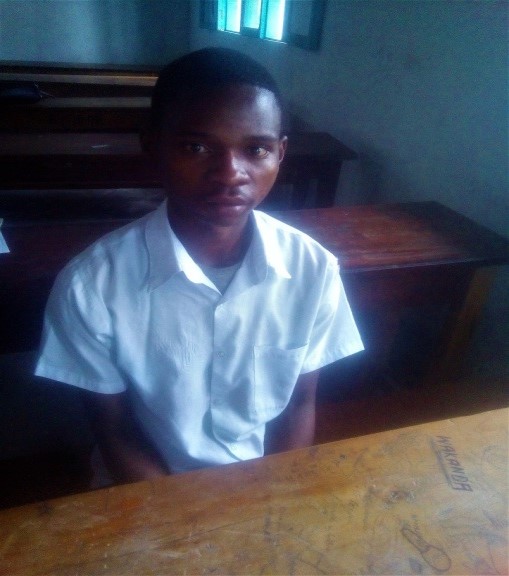With a complex history of civil war and political corruption, it’s unsurprising that gifts we take for granted, such as health, education and safety, are struggles for people living in the Democratic Republic of Congo.
In the Mbankana community where ACET DRC works, described by some as ‘a city within the city of Kinshasa’, most girls and boys become parents before they are 18 years old.
Rumours and misconceptions around sex, like elsewhere in DRC, are all around, such as: “the oil contained within condoms is toxic and will cause cancer” and “living with a person who has HIV is dangerous as they will end up infecting someone.”
Yet sex is often a taboo subject in DRC.
For example, before ACET DRC training for church leaders in Mbankana, not one of delegates could identify parts of the male and female genital organs; there was a complete lack of understanding about the female menstrual cycle; and AIDS was thought to be the result of witchcraft.
Women in DRC are disproportionally affected by HIV: of the 390 000 adults living with HIV, 72% are women, and new HIV infections among women in 2018 aged 15 – 24 years were four times higher than among young men.
Gender based sexual violence is a key driver of this HIV statistic: 70% of girls and women in conflict settings have experienced some form of sexual violence.
Relationships and sex education
RSE sessions are delivered in 10 schools in Kinshasa and 20 schools in Goma, covering topics such as puberty, reproductive health, friendships, intimate relationships, love, HIV and AIDS, power and control, and sexual violence and abuse.
ACET DRC's work has a particular focus on reaching youth who have a disability or special needs, given their specific vulnerability. For example, schools for the deaf report much higher rates of teenage pregnancy, due to the limited communication skills of students: 13 out of the 15 teenagers who dropped out of these schools in 2017/2018 due to pregnancy were from the school for the deaf.
The programme provides the opportunity to help young people define themselves as sexual beings; establish healthy, protective behaviours and practices with regard to their reproductive health; and protect themselves from HIV infection.
Life skills clubs
Each school has a life skills club to consolidate the learning from the classroom.
Student peer educators are identified by the teachers trained by ACET, and supported in developing the necessary competencies needed to maintain healthy choices in regards to relationships and in matters related to sexual and reproductive health (e.g. delaying sexual debut).
Interpersonal communication materials and role plays are used to provide the peer educators with practical knowledge and skills, enabling them to share vital sexual health messages with peers at the clubs.
Club members report various changes in their lives such as: becoming more knowledgeable about sex, reproduction, and HIV; becoming more open and confident; becoming more accepting of HIV positive people; learning how to facilitate an education session in front of a group and; engaging in less risky sexual and related behaviours.
Listening centres
As a result of the mass sensitisation during school assemblies and education in the classrooms and in the clubs, hundreds of students gain the confidence to seek help from a trained ACET DRC counsellor at a listening centre.
Hundreds of students - and teachers and parents - benefit from this service.
The counselors at the listening centres address a broad range of experiences faced by young people, such as living with HIV, caring for a parent who is dying of AIDS, coping with HIV stigma, abusive dating relationships, drug abuse, decisions about dropping out of school and early marriage, family relationship issues, domestic violence, sexual abuse, and economic difficulties.

19 year old Timothy, who attends EPHATA school for the deaf, tells his story:
"Before I received the teaching from ACET DRC I had no plans for the future.
I didn’t understand sex and I thought I had to engage in sex to understand it and to discover things about myself.
When I was told about STIs, HIV and AIDS, I realised I was putting myself in dangerous situations.
My parents have seen how I have changed since meeting ACET. I now have the strength to live a healthy live and abstain from dangerous sexual activity.
Thank you so much for teaching us, I was never told about healthy relationships and sex before.”
